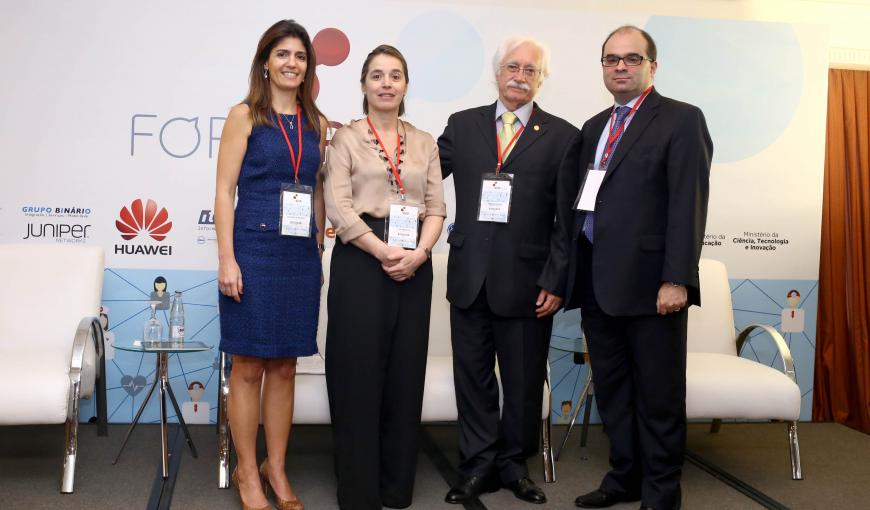Relationship between medical ethics and technology challenges the legislation
In the session on Legislation and Regulation, on the second day of the III RNP Forum, the debate highlighted the relationship between ethics and technology in the medical practice. The Federal Council of Medicine (Conselho Federal de Medicina - CFM) Second Secretary Gerson Zafalon made an overview of the major laws and resolutions dealing with the issue, especially the Medical Ethics Code, of 2009.
The code allows the distance medical care, provided that it is regulated by the CFM, and prohibits the doctor to revealing any fact in the exercise of his profession, except for right cause, statutory duty or written consent of the patient.
The Second Secretary also cited the CFM resolution 1,974/2011, which regulates the use of social networks by doctors, and the resolution 1,949/2010, which prohibits the conduct of surveys and audits through any electronic means.
In 2012, the resolution received an opinion from CFM that regulates the videoconferencing in medical administrative examinations. “There are still some obstacles, such as the remote service in Ophthalmology, Cytopathology, and Dermatology,” said the CFM Second Secretary.
In the same session, the Telemedicine and Telehealth Brazilian Council Vice-president and the University of São Paulo (USP) Professor Ana Estela Haddad said that there are new paradigms in health practices, such as the remote transmission of preliminary clinical procedures, therapeutic and examination results, which require digital certification.
For her, “with the busiest information traffic, there is greater risk of breaking professional confidentiality in the doctor-patient relationship, the doctor-patient relationship by ICT, in capturing images and data during transmission, the information leakage in clinical case discussions and in the third parties’ presence.”
Ana Estela Haddad also listed measures to guarantee the rights of privacy and confidentiality, such as restricted access to user profiles, passwords, auditing, signing confidentiality agreements, and more secure information systems. “The E-Health can be thought as a bridge capable of uniting the technology coldness and the health professions sensitivity,” she said.
To the session’s moderator José Henrique Barbosa Moreira Lima Neto, from Fabião & Moreira Lima Lawyers, the internet forces us to review the tenets of law. “For example, in the Criminal Code, the crime of theft is to subtract something from someone. In the case of energy, this property is not tangible. In the case of thefts in the database, this is not subtracted, but a copy is made,” he exemplified.
